The Editorial Office of Nano Materials Science (NMS), an English journal run by Chongqing University, held the First Nano Material Science Awards Conference and 3rd Nano Material Science Forum held successfully on line in collaboration with Nanoer Luman Research Institute on the morning of August 7, 2021.
Academician Lyu Jian, editor in chief of NMS from City University of Hong Kong, Academician Wang Zhonglin, President of Beijing Institute of Nanoenergy and Nanosystems, Chinese Academy of Sciences and a chair professor and lifelong director of Georgia Institute of Technology, Hu Ning, associate editor of NMS, vice president of Hebei University of Technology, Huang Xiaoxu, associate editor of NMS, dean of the School of Material Sciences and Engineering of Chongqing University, Professor Omid Mahian, associate editor of NMS and professor of Xi’an Jiaotong University, Professor Zhang Yuxin, executive associate editor of NMS, Professor Zhang Qiang from Tsinghua University, a member of the Editorial Board of NMS and a Distinguished Young Scholar of China, Professor Duan Xiangfeng from University of California, Los Angeles, a member of the Editorial Board, Yuan Wenquan, director of the Office of Social Sciences, CQU, chief editor and president of the Publishing Office, You Bin, deputy editor, Zeng Zhong, vice president of the Publishing Office, and all members of the Editorial Office of NMS participated in the event. The event was chaired by Zhang Yuxin.

At the event, Omid Mahian gave an introduction to the setting of Nano Materials Science Awards. In his speech, Omid Mahian pointed out that the “Nano Materials Science Awards” had been established in recognition of individuals that had made remarkable contributions to nano materials science and nano technology, in a bid to encourage more scientists and engineers to engage in the scientific research of nano materials, stimulate the original innovation and technological innovation of nano materials, and promote the R & D of nano materials and further development of the industry.
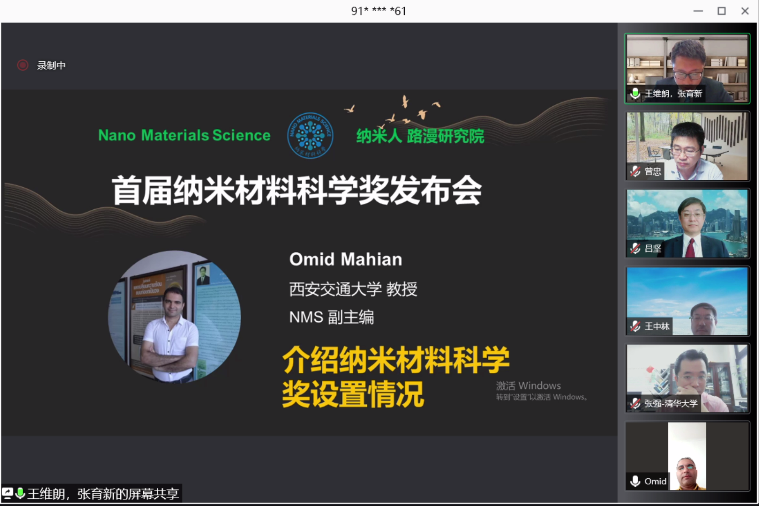
After that, Lyu Jian announced the first nominates of Nano Materials Science Awards. There were totally 40 nominates from 19 countries. Specifically, 5 nominates have H index above 100, and 11 have H index between 50 and 100. The Review Committee made up of members of the Editorial Board carried out comprehensive assessment of the nominates and eventually selected the winners of “Nano Materials Science Awards” and “Nano Materials Science Young Scientist Award”.
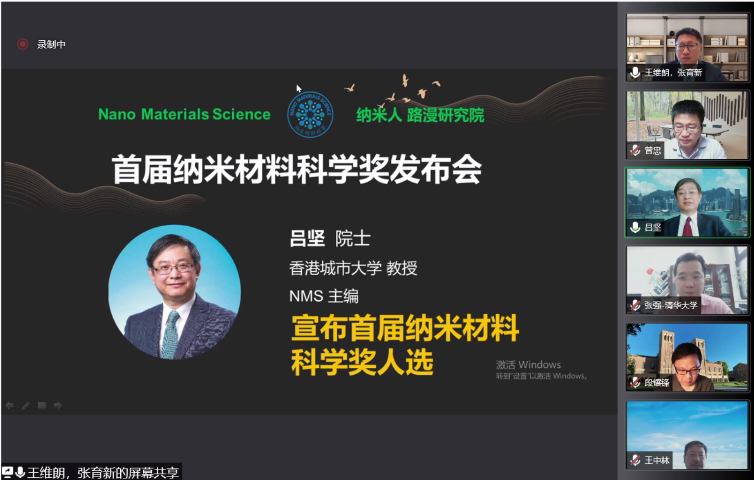
The “Nano Materials Science Award” went to Wang Zhonglin. The “Nano Materials Science Young Scientist Award” went to Zhang Qiang, Duan Xiangfeng, and Professor Valeria Nicolosi from TRINITY College Dublin Ireland. The winners delivered acceptance speech in succession.
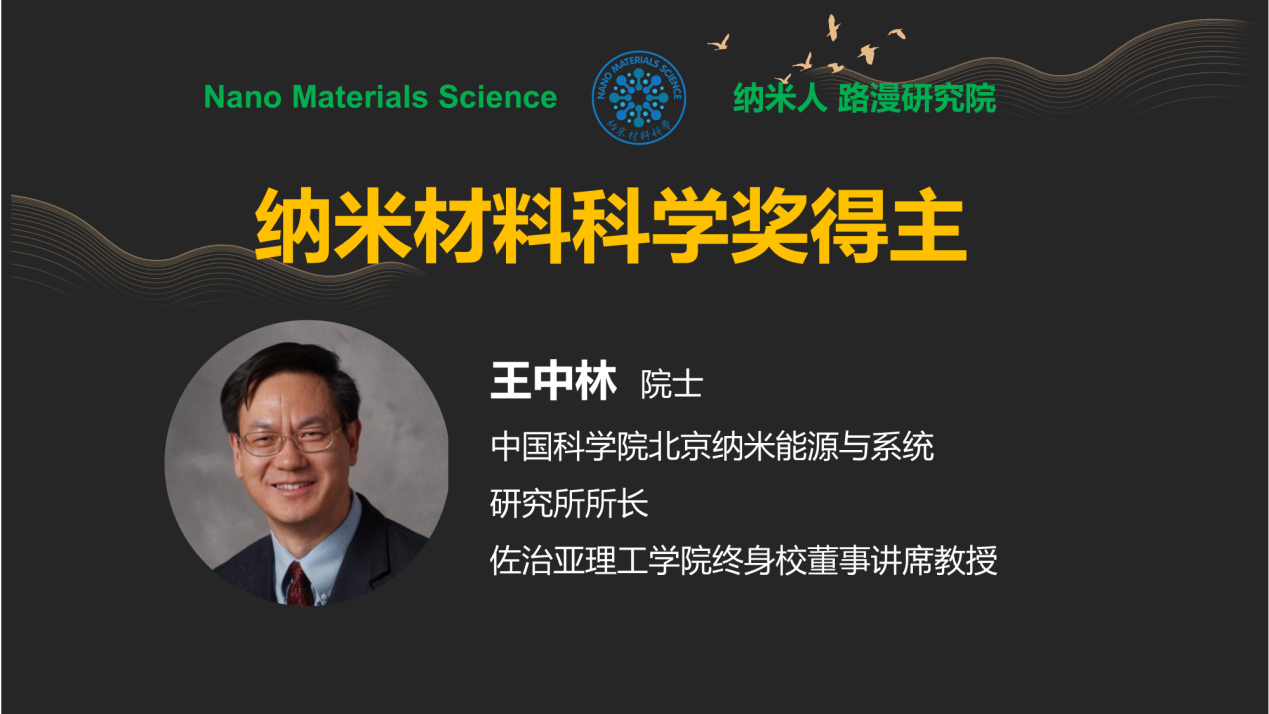
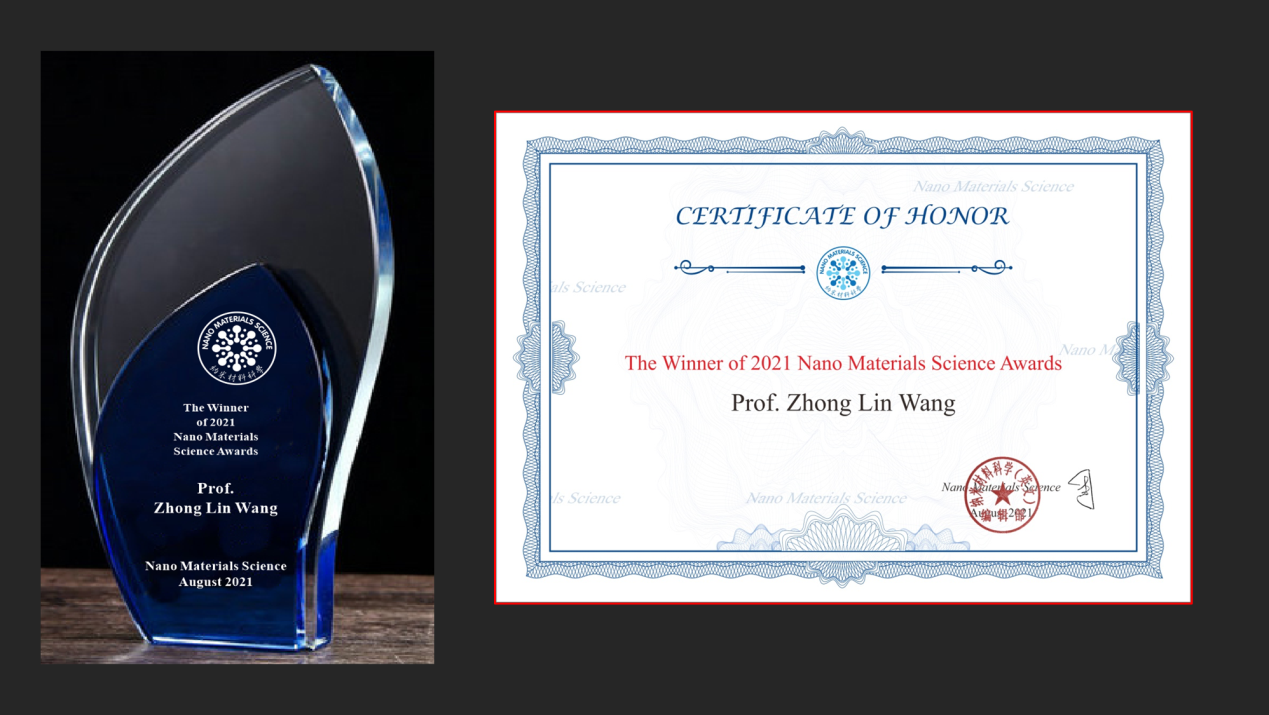
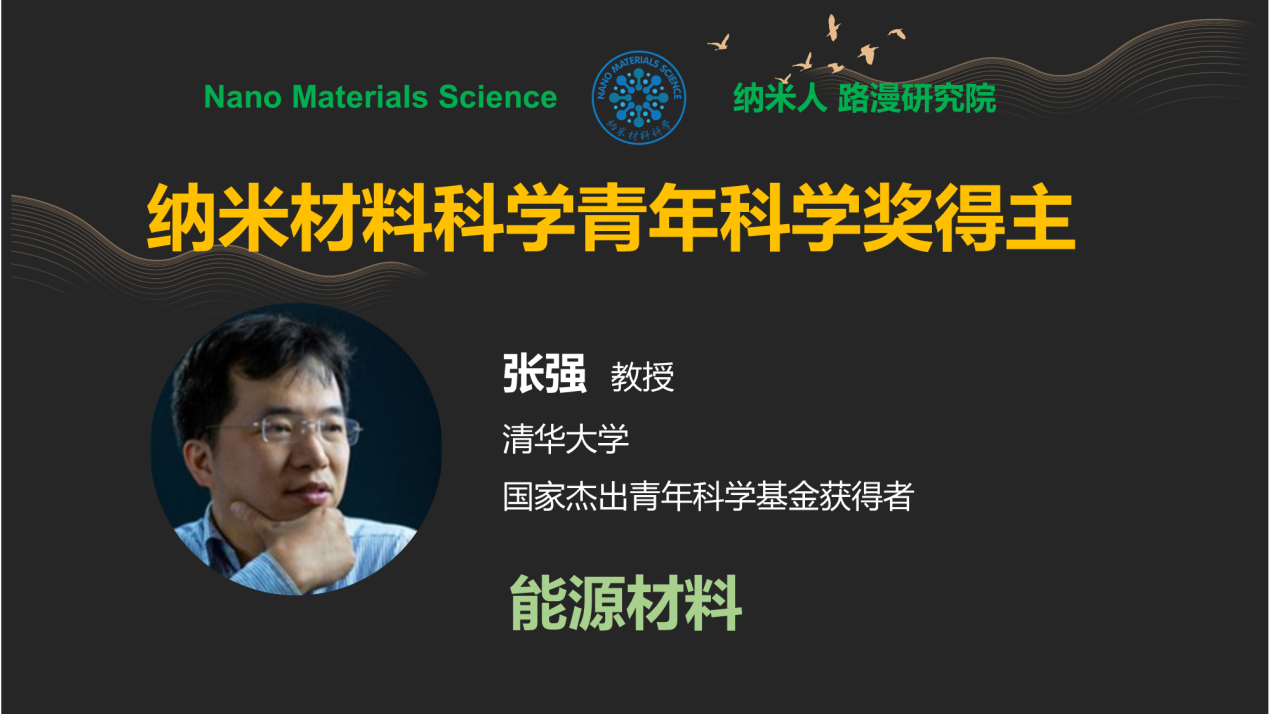

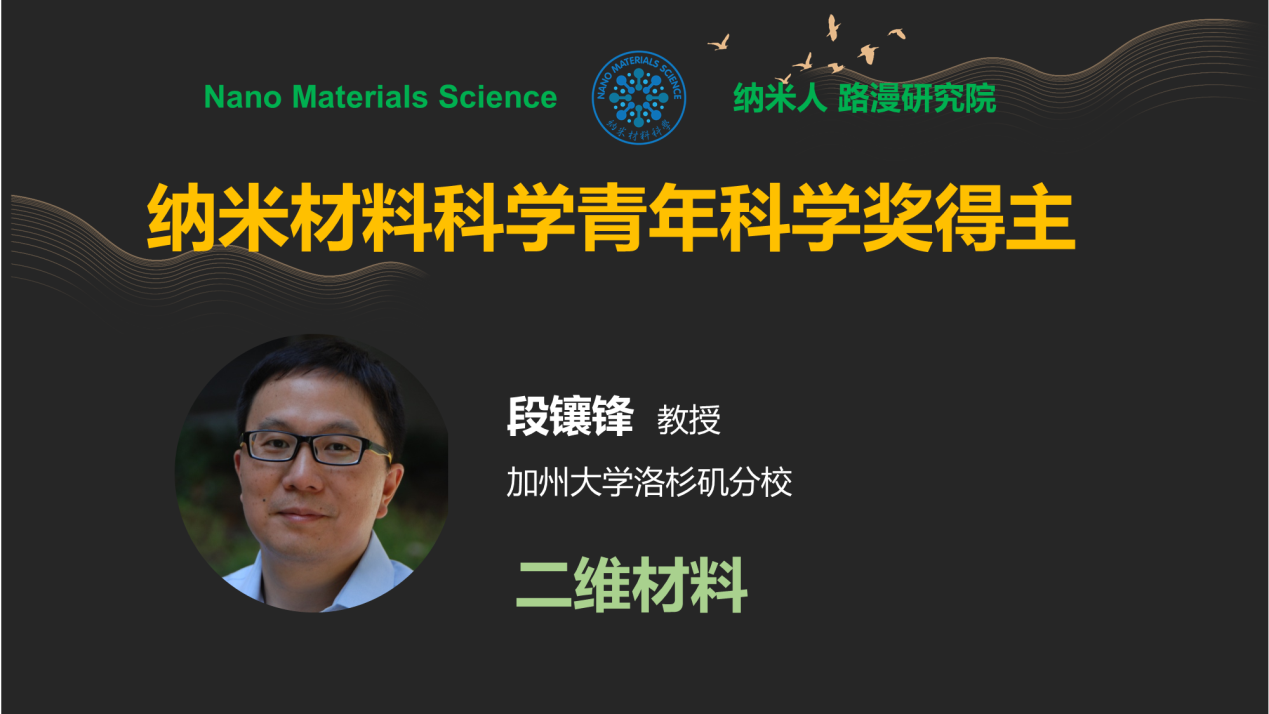
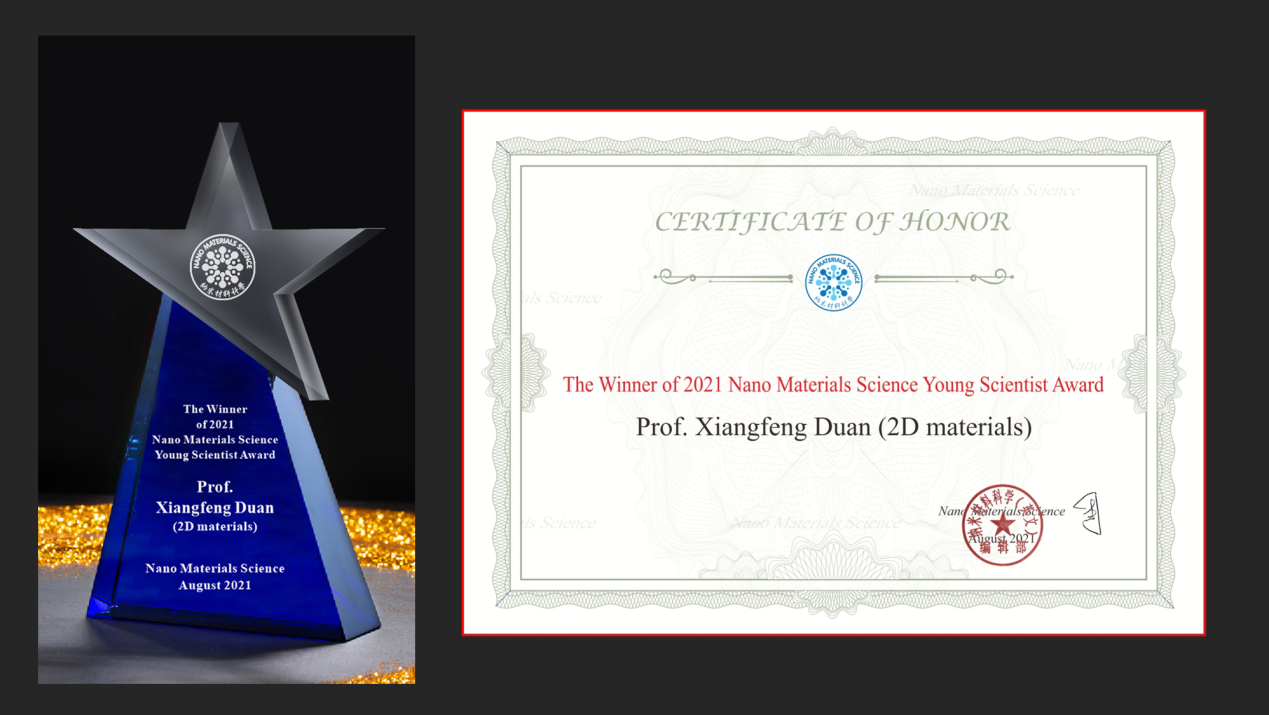

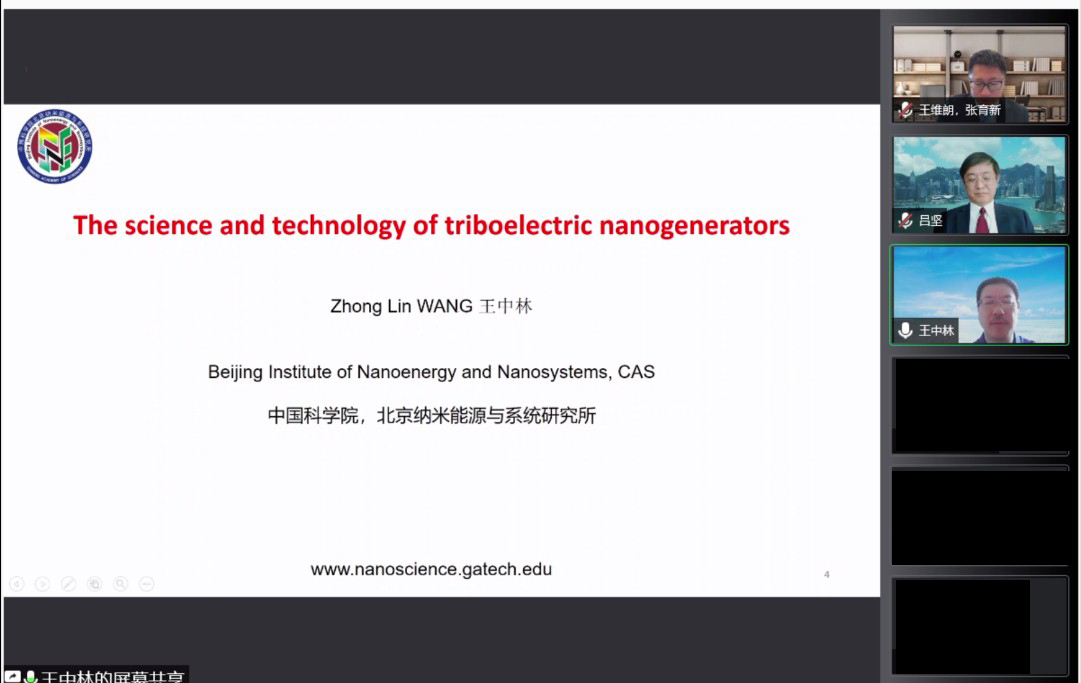
Wang Zhonglin and Zhang Qiang delivered an academic speech respectively. The speech of Wang Zhonglin was titled The science and technology of triboelectric nanogenerators, In his speech, Wang talked about the principle of nanogenerators, the latest development and the practical application of nanogenerators. His speech was rich in content and easy to understand. Wang also recommended some top-quality articles of this area to the audience.

The speech delivered by Zhang Qiang was titled latest advances in lithium bond chemistry in the context of carbon neutralization. In the speech, Zhang Qiang explained how his research works were aligned with the national need, and gave an introduction to the research in the lithium battery field in the context of peak carbon dioxide emissions and carbon neutralization, with a focus on the research progress in lithium key chemistry.

After the speeches, two experts had heated online exchange with audience. This event was covered by official WeChat accounts, WeChat Channel, Bilibili and other platforms. More than 60,000 professional scientific researchers watched the conference video, which had got more than 20,000 likes, and were well received by audience.
